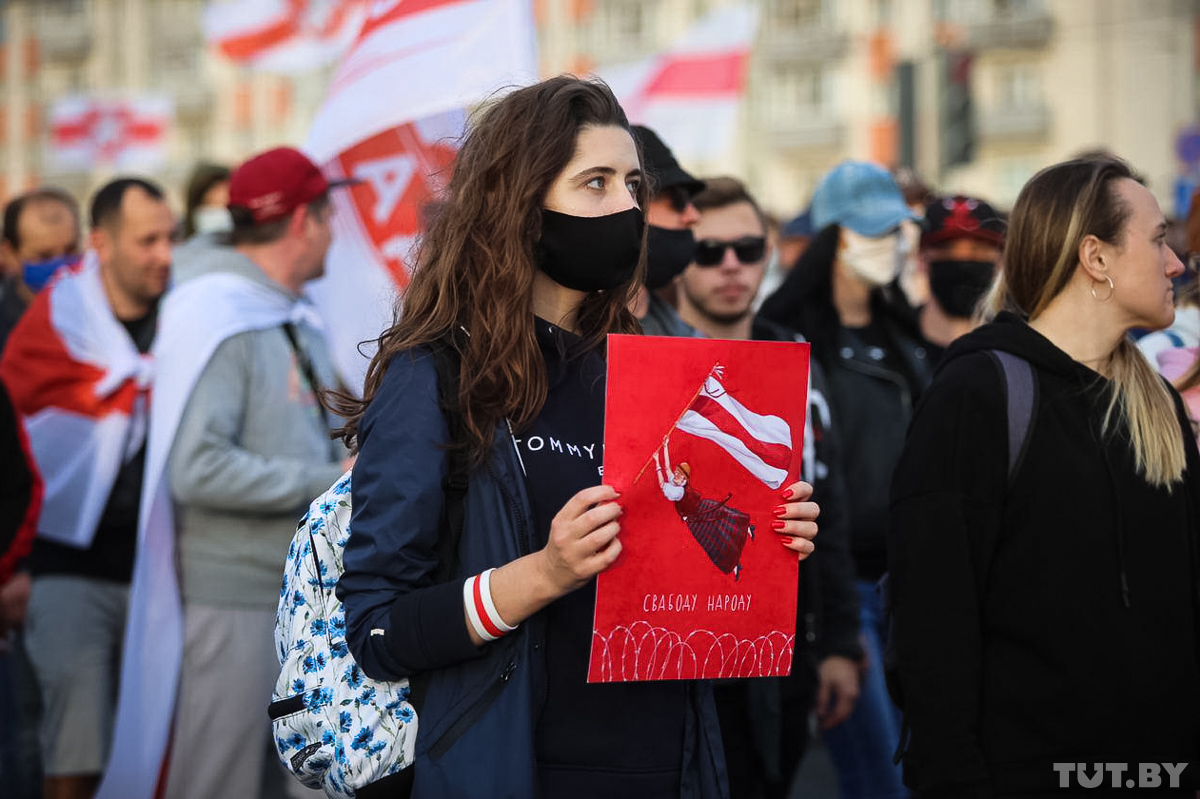

Minsk – October 7, 2020
In response to recent reports of the charges under Art. 293 of the Criminal Code (mass riots) brought against Mikita Hancharou, Uladzimir Harokh, Maksim Zinevich, Mikhail Kalishuk, Antanina Kanavalava, Ivan Krasouski, Illia Mihno, Viktar Shaur, Hanna Sunhurava, Tamaz Pipiya, Tsimur Pipiya, Rastsislau Stefanovich, Artsiom Kasakouski, Dzianis Marusevich, and Mark Salonnikau, as well as against Illia Palaniankin, Maryna Hlazava, Yauhen Kakhanouski, Aliaksandr Kisialiou, and Andrei Rasulau under Art. 342 of the Criminal Code (“group actions that grossly violate public order”), reaffirming the position set out in the joint statement of the human rights community of August 10, we note the following:
Freedom of peaceful assembly is guaranteed by Art. 21 of the International Covenant on Civil and Political Rights. This freedom is not subject to any restrictions other than those established by law and necessary in democracies for the purposes of national and public security, public order, public health and morals, or the protection of the rights and freedoms of others.
The post-election protests were spontaneous, self-organized, and were caused by distrust of the official results of the August 9 presidential election, which were marred by numerous violations and fraud, and were not recognized by the international community as democratic, fair or free.
The assemblies were peaceful and did not pose a threat to national or public security. Despite this, the demonstrators were attacked by special units of the Ministry of Internal Affairs with disproportionate use of physical force, riot gear means and weapons.
For the first time in the history of Belarus, rubber bullets and water cannons were used against peaceful demonstrators. A particularly large amount of damage was suffered from the use of stun grenades.
In a statement of August 10, the Belarusian human rights community condemned the actions of law enforcement agencies and placed all responsibility for the events of August 9 and 10 on the authorities of the Republic of Belarus.
We also consider it necessary to note that the demonstrators did not commit any of the actions covered by Art. 293 of the Criminal Code and accordingly cannot be qualified as mass riots. The protesters did not set fires, destroy property or put up armed resistance to law enforcement agencies.
Isolated cases of violence against police officers by demonstrators require a separate legal qualification, taking into account the context and circumstances of the use of violence, including in the context of self-defense against knowingly disproportionate actions of police officers.
We assess the persecution of Mikita Hancharou, Uladzimir Harokh, Maksim Zinevich, Mikhail Kalishuk, Antanina Kanavalava, Ivan Krasouski, Illia Mihno, Viktar Shaur, Hanna Sunhurava, Tamaz Pipiya, Tsimur Pipiya, Rastsislau Stefanovich, Artsiom Kasakouski, Dzianis Marusevich, Mark Salonnikau, Illia Palaniankin, Maryna Hlazava, Yauhen Kakhanouski, Aliaksandr Kisialiou, and Andrei Rasulau, who were charged under Art. 293 and Art. 342 of the Criminal Code, as politically motivated, as it is solely connected with the exercise of their freedom of peaceful assembly and expression. Were, therefore, consider them to be political prisoners.
In this regard, we call on the Belarusian authorities to:
Human Rights Center “Viasna”
Legal Initiative
Belarusian Documentation Center
Advisory center on contemporary international practices and their legal implementation “Human Constanta”
PEN Belarus
Belarusian Association of Journalists
FORB Initiative
Subscribe to our
newsletter
Sign up for our monthly newsletter
and receive the latest EPDE news
Subscribe to our
newsletter
Sign up for our monthly newsletter and receive the latest EPDE news